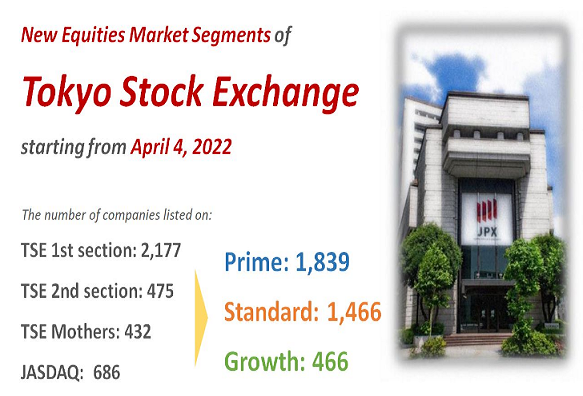TSE Cash Markets
Japanese stocks, overbought by foreigners by 330 billion yen, high expectations of improved earnings

Foreign money is returning to Japanese equities. According to trading trends by investment category for the fifth week of August (August 28-September 1) released by the Tokyo Stock Exchange on 7th, the net long position price of foreign investors was over 330 billion yen, the largest in 2.5 months.
The buying is due to rising expectations for improved performance of Japanese companies amid the accelerating depreciation of the yen in the foreign exchange market.
Takayuki Ishibashi, Vice President at Goldman Sachs, says, “Recovery of the foreign teams after the summer vacation is faster than I expected” They were also buying after carefully researching individual companies, indicating a high level of interest in Japanese equities.
Foreign investors put 339.3 billion yen of cash equities in net long positions in the fifth week of August. This was the first net long position in three weeks and the first net long position price since the second week of June (12th to 16th). Combined with futures, the net long position is 968 billion yen.
The Nikkei 225 was up 4% since August 25, showing strength while the US Dow Jones Industrial Average was mostly flat. Hirokazu Kabeya, Chief Global Strategist at Daiwa Securities, explains “The outlook for corporate earnings has improved more than in the U.S” and the trend of preference for Japanese stocks.
The driving force is the benefit of the yen’s ongoing depreciation. This is because it will be a tailwind not only for export-related stocks such as automobiles, but also for domestic demand-related stocks through demand from inbound tourists (foreigners visiting Japan). Daiwa expects pre-tax profits of its major listed companies (excluding finance and SoftBank Group) to increase by 5.1% in fiscal year 2023 from the previous year (announced on September 7). This is a 4.4 percentage point increase from the previous forecast issued in June.
The “Japan Conference” will be held by Bank of America in the United States from 4th to 8th at a hotel in Tokyo. The event, the first real one in four years, was enthusiastically attended by more than 1,200 participants, including overseas INSTITUTIONAL INVESTORS. Interest in Japanese equities is high.
Vivek Gandhi, who is in charge of investment strategies for “non-U.S” stocks, including those in Europe and China, at US asset manager Putnam Investments, is one such person. “I am impressed with their efforts to improve profitability and corporate governance” and Japanese companies are evaluated and new investment opportunities are explored.
Will the momentum of Japanese stock buying continue? The risk is the US stock market. Crude oil prices rebounded after Saudi Arabia and Russia decided to extend voluntary cuts in oil production and exports. The optimistic scenario that inflation will subside, the Federal Reserve (Fed) will stop raising interest rates, and the economy will escape recession is shaky.
The Nikkei Stock Average on 7th fell for the first time in nine days, closing at 32,991 yen, down 249 yen (1%) from the previous day. Tomoo Kinoshita, global market strategist at Invesco Asset Management, says, “If US stocks adjust, Japanese stocks will be able to suppress higher quotations for the rest of the year.” (Hirokazu Imahori)
Undervalued stocks, room to dig
The best performing Japanese stock we hold this year is Renesas Electronics. The company has been very successful, winning design projects (for car semiconductors) from international automotive companies, but until recently it was trading at valuations (investment scale) below 50% of its competitors. Thus, the potential to discover (reasonably priced) stocks is high.
The current depreciation of the yen is very favorable for Japanese export-related companies. The positive effects of the yen’s depreciation have not yet fully manifested themselves in terms of business performance, and it is still viewed as an attractive investment target. In the future, it believes there is a possibility that the yen may swing toward appreciation due to the Bank of Japan‘s revised monetary easing measures, and it would like to increase its investment in Japanese domestic demand-oriented stocks in such a scenario.
The person notes that investors in Japan, especially individuals, aren’t yet fully invested in their country’s stock market. Looking ahead to 2024, the Nippon Individual Savings Account (NISA) is set to expand the amount of funds available to foreign investors, and it believes that foreign investors should take a close look at the effects of this expansion.
(The interviewer is Kayori Yoshii)
Jeremy Podger is a portfolio manager at Fidelity International in the UK. The person has 36 years of investment experience and joined the company in 2012. It is a graduate of the University of Cambridge and a MBA from the London Business School.
Related links






